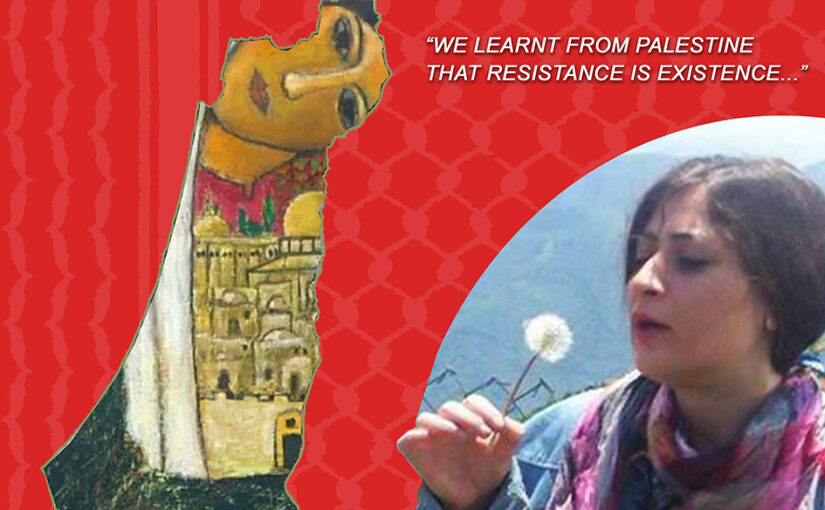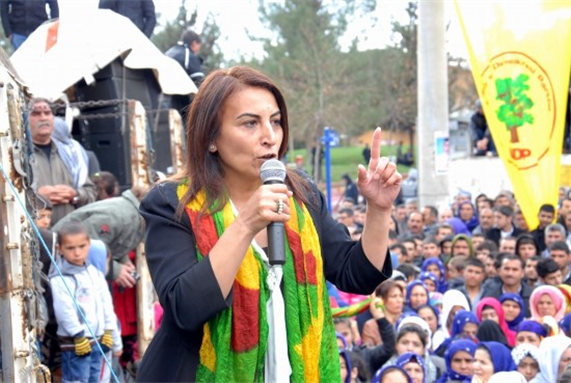Atefeh Rangriz is a writer and activist in Iran who was arrested in 2019 during a May 1st International Workers Day public gathering in Tehran, and was sent to the notorious Gharchak women’s prison.
Rangriz launched a hunger strike on October 18 to protest her prolonged detention and abuse in prison as well as the harassment of her family. In a statement during her hunger strike she expressed “I will turn my body into a weapon against all the oppression we’ve been through”. She received 11 years prison sentence but was able to secure her own release on bail.
On September 10th, 2023, as part of the wave of mass arrests ahead of the anniversary of Jina Amini’s death in custody by the state, Rangriz was re-arrested and was sent to Shahrud prison.
Since October 18th Rangriz has begun another round of hunger strike. This time her hunger strike has coincided with Israel’s genocidal war on Gaza. Below is a the transcription of her audio solidarity message to the people of Gaza and the broader Palestinian liberation movement:
“For Palestine, us, and our resistance. Oh, Palestine, occupied county, land of the olive trees and winds of resistance. I write to you even though my hands are tied. We learned about resistance from you a long time ago. [We learned] That resistance is life and never ending. And we have continued, and will continue, this path in the Jin, Jiyan, Azadi revolution. Oh, people of Palestine who are bombarded with fire. We will neither forgive nor forget. We are, and will remain, seekers of justice.
Yes, we know very well that in occupied lands, our fire is a fire of joyful rebellion and fire of Shakarimis*, fire of ‘yes’ to life and ‘no’ to everything that is reactionary, and burning it. Our fire is a ‘no’ to everything that cuts life’s umbilical cord. But their fire is the fire of genocide, child murder, atrocity, prosecution, war and execution.
Yes, they are the ones who belittle our message, who draw their swords to spill our blood. Oh, Gazan child, our scream for your blood is not different from our scream against those who have our blood on their hands. But since I believe that resistance is life, I know that the day will come that our lands will be liberated, and we will still scream at them and tell them to go live and die anywhere else, but not among us. The time has come for them to leave us alone because we have a lot to do and must start doing what we’ve been prevented from doing. Here we have the history and the sound of first cries at birth. Here we have today and the future, and our world and our destinies. We will tell them to get lost from our lands, from our land and our sky, our bread and our scars, our everything and our memories.
Long live Palestine. Long live everyday resistance.
Shahrud Prison, October 20, 2023”
* Nika Shakarami is a 16 years old martyr of the Jin Jiyan Azadi uprising in Iran who went missing on September 10 during street protests. Her dead body was found at a morgue in a police station 10 days later.


